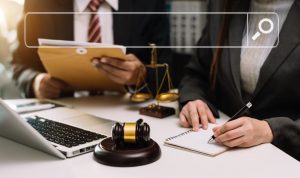Jan 01, 2022 | CHASENBOSCOLO
 If you are involved in an accident that was not your fault, you may be entitled to compensation. However, there are several factors that can adversely affect your case. Posting on social media is one of those factors.
If you are involved in an accident that was not your fault, you may be entitled to compensation. However, there are several factors that can adversely affect your case. Posting on social media is one of those factors.
After a traumatic accident, it’s natural to reach out to family and friends and assure them. Unfortunately, when you use social media, you may be setting a trap for yourself. If you are seeking compensation for your injuries or filing a personal injury claim with the at-fault party’s insurance company, you could destroy your case before it even gets started.
How Your Posts Can Harm Your Case
The social media platform you use is not as important as not posting in the first place. Even an innocent post can be used against you. For example, what you say in a post can be used to poke holes in your injury case. How you look in any photos can be used as evidence. Where you are in the days and weeks after an accident can also be used as evidence that your injuries were not as serious as you are claiming.
Many people enjoy using geotags to check in with friends. However, these tags may demonstrate to the opposing counsel or insurance adjuster that you’re traveling and out of your home, at the same time you’re claiming that your injuries or depression has kept you isolated.
It is important to remember that pictures and social media posts do not have context. If you’re smiling in pictures taken with a group of other smiling people, it can be argued that you are exaggerating your claim of depression and your mental state. The picture is taken in less than five seconds and does not represent how you’re feeling, but it can be argued that it’s representative of your current situation.
Anything you post online can also be interpreted incorrectly. For example, your comments may be interpreted as an admission of fault, or the post shares information about the accident that should remain confidential to support your case.
For example, attorney-client confidentiality will be upheld by the court if you and your attorney are the only two people who know the fact. If you give information on the details of the accident or injury, the opposing side can argue that you gave up your right to confidentiality when you began sharing the information.
Insurance companies and opposing counsel can also look at your overall activity level on social media as evidence that you are exaggerating your injuries. Even if the comments and images have nothing to do with the accident or your current situation. The defense can argue that posting your “normal” amount of activity indicates that you do not have as much physical or emotional pain as you claim. The best solution is to stay off social media after an accident.
How Opposing Counsel and Adjusters Find Your Posts
 Once insurance adjusters and defense attorneys find your social media profiles, they can glean different kinds of information. This includes your date of birth, ethnicity, relationship status, photos of yourself, friends and family, and videos that may reveal your speaking patterns.
Once insurance adjusters and defense attorneys find your social media profiles, they can glean different kinds of information. This includes your date of birth, ethnicity, relationship status, photos of yourself, friends and family, and videos that may reveal your speaking patterns.
It’s easier to find your social media posts than you might think. Even when your social media profile is private, lawyers can have access during the discovery process. During this part of the preparation for an injury lawsuit, each side can ask the other side for information. This means you may be forced to turn over even your private media posts.
The court can also order the social media platform to restore any posts that were deleted. If you receive a friend request from someone you don’t know, it may just be the insurance adjuster or opposing counsel’s legal team looking for information that you might be posting.
How to Avoid Damaging Your Case With Social Media
If you have already posted to your social media accounts, it is vital that you do not delete anything. Destroying potential evidence can be fatal to your case. Instead, you must preserve your current postings and talk to your attorney about safely and correctly archiving the information.
You may also wish to deactivate your social media accounts, so you are no longer posting until the case is over. Ask your friends not to post any pictures or comments about you on their social media accounts. Watch to see if you are tagged in photos on your friends’ accounts and monitor them carefully.
After an accident, keep and preserve all electronic devices that you own. Even if you had already planned on getting rid of a cell phone or a tablet, store it until your case is over.
Call CHASENBOSCOLO Today for Your Free Evaluation
If you were injured because of someone else’s negligence, call CHASENBOSCOLO for a free case evaluation. You will meet with one of our experienced attorneys who will review your case details and advise you on your next best steps.
We understand the emotional and financial burden that may follow a significant accident and injury. We know that money cannot make up for the physical and emotional pain. However, money to cover your medical expenses and replace lost wages can make the road to recovery just a little smoother. Call us today at (301) 220-0050 or contact us online to schedule your free consultation.





